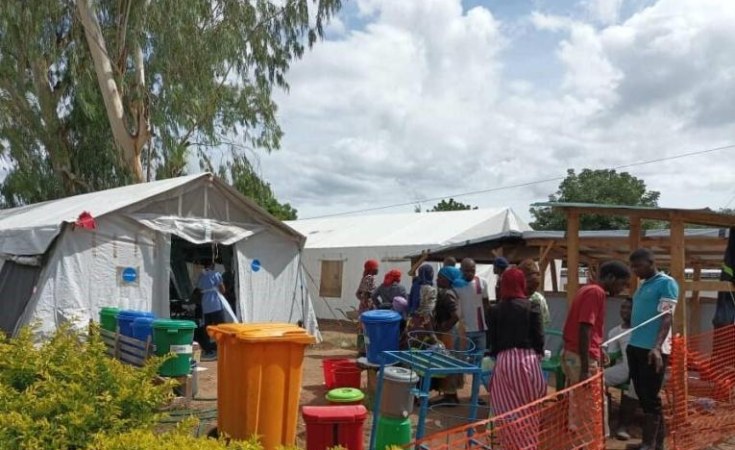Blantyre — The World Health Organization has called for Africa to step up the fight against cholera, which in the last year killed more than 3,000 people in 12 African countries, with more than half the victims dying in Malawi's record outbreak. The global health body and the Africa Centers for Disease Control and Prevention held a two-day emergency meeting on cholera this week in Malawi with ministers from 14 African countries.
The two-day meeting ended Friday with a call for countries to take a holistic approach in improving issues of water, sanitation and health among their populations.
A closing statement said more commitment was needed on surveillance and prevention to eliminate the deadly cholera bacteria, which is spread by dirty water.
The participants also resolved that African countries need to start producing their own cholera vaccine.
Dr. Ambrose Talisuna, WHO's regional adviser for health security in Africa, said the continent continues to face cholera outbreaks despite past commitments to eliminate the disease.
"They committed themselves in 2018 by Regional Framework for Africa but we are lagging behind, the milestones are lagging behind," Talisuna said. "So we really want to revitalize cholera prevention and control sustainably in Africa."
Talisuna said 12 African countries have current cholera outbreaks, totaling some 130,000 cases, with more than 51,000 in Malawi.
"This is just too much, and we don't know how many countries will have cholera before the end of the year," he said. "But the outbreak we see in Malawi is so far the largest and it is related to issues around climate change but also cross-border movement."
Malawi has recorded more than half of Africa's cholera fatalities, making it the worst outbreak the country has battled in decades.
Malawian Vice President Saulos Chilima told the delegates Friday the country is now seeing a drop in cases largely because of an anti-cholera campaign the Malawi government launched last month.
The country has also seen a drop in the fatality rate, from 3.3% in August, to 1.8% now, still above the WHO target rate of 1 percent.
Malawi's Minister of Health, Khumbize Kandodo Chiponda, confirmed that progress has been made.
"The numbers have significantly gone down," Chiponda said. "About three weeks or two weeks ago we were having about 700 or 800 cases on a daily basis. But as of now there are about 200, sometimes 300. Even people who are dying from cholera, the numbers have gone down."
Health rights campaigner Maziko Matemba told VOA that the involvement of WHO and the Africa CDC in the cholera fight could help the country abolish some common diseases too.
"We hope that there will be more research and surveillance in Africa, which will help and support the ending of some of these conditions which are preventable in nature," Matemba said. "But also, it will create awareness to countries to put more resources toward health to end some of these conditions which are preventable in nature."
Dr. Merawi Aragaw, head of emergency preparedness and response unit at Africa Centers for Disease Control and Prevention, said there is a historical precedent for eliminating cholera: Europe. He said African outbreaks can be stopped if governments take a well-coordinated, collective and multi-sector approach like Europe did 150 years ago, which helped that continent virtually eliminate the waterborne disease.
Aragaw said the approach would center around improving water and sanitation infrastructures across Africa.


